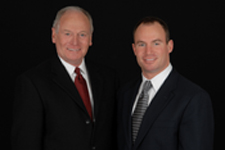Selecting the Right Consultant for Your Club
Getting started A consultative relationship may suffer when all involved don’t share the same understanding of mutual expectations. Meet in person to make certain that all parties share the same vision of what is expected of themselves and each other. Discuss the goals, process to be followed, expectations of communication throughout the project, and the criteria by which each party will know that the project has been successfully accomplished. Identify any potential pitfalls such as conflicts of interest or time. Look for the consultant’s buy-in and passion for your vision. Maintaining integrity of the process Sign a mutually binding confidentiality agreement, which can be incorporated within the engagement agreement. Ensure that each director and staff representative is aware of their responsibility to be discreet. (In any event it is a good idea to have a standing, written conflict of interest and confidentiality policy, which directors must sign upon accepting nomination to the board. Review the policy and adherence thereto, as a routine component of the board's self-evaluation). Where do we look for good consultants? Referrals from other clubs are the best source. If you belong to multiple clubs inquire of the leaders who they have used and to describe their experience with their consultant. Contact professional associations; peruse trade publications; search the specialty on the Web, i.e. “private club management search”; ask consultants, whom you’ve used successfully on other projects, who they know that specializes in your particular current need. Compare the credentials, experience and track record of several firms before making your selection. Even if one consultant seems absolutely perfect for the assignment compare them to at least one other. Then, after conducting your due diligence (references, phone screening, etc) the consultant engaged will come in with a mandate rather than simply your blind trust. Criteria to look for A consultant should exhibit professionalism, and other characteristics which you might seek in a professional member of your staff:
Considering board members as paid consultants? The expertise available from experienced, skilled board members is essential to the success of a private club and makes service on the board both fulfilling and mutually rewarding. Engaging a director as a paid consultant, however, raises significant conflict of interest issues. On the other hand, a director who volunteers to function as an unpaid specialist invariably becomes a resentful and frustrated consultant. Then, the board will ultimately lose a previously productive director. There is truth in the saying,”You get what you pay for”. Professional board members can be of immeasurable help in evaluating consultants, particularly in fields with which they have experience. Evaluating proposals Weigh the relative importance of the consultant’s credentials with your club’s financial situation while acknowledging that the right consultant can more than pay for himself with results. Ask:
What should be included in the written engagement agreement?
Ingredients of a winning relationship between client and consultant Honesty, candor, trust, mutual respect, open and frequent communication between client and consultant are essential to a productive working relationship, based upon:
Harvey and Mark Weiner, two generations of thought leadership in private club management search & consulting, are partners in Search America® , Trusted Advisors Since 1974. Offices: Dallas and Boca Raton 800.977.1784 www.SearchAmericaNow.com © Search America |
| Western U.S. Office: Los Angeles, CA 310.237.5514 |
Central U.S., International & Corporate Office: Dallas, TX 972.233.3302 |
Eastern U.S. Office: Boca Raton, FL 561.479.4787 |
Website: www.searchamericanow.com E-mail: [email protected] United States Toll-Free: 1.800.977.1784 Fax: 775.368.0040 |


